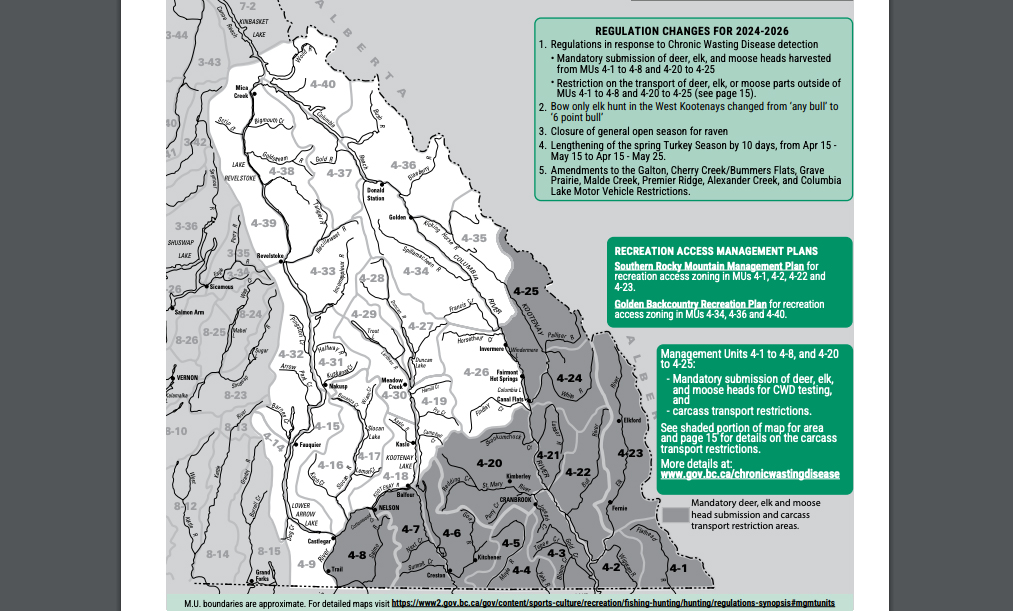Province takes further action to manage chronic wasting disease
Government is taking further steps to limit the spread of chronic wasting disease (CWD) in deer populations and to protect elk, moose and caribou that are also at risk of infection.
Chronic wasting disease is a fatal infection that affects species in the deer family (cervids), such as mule deer, white-tailed deer, elk, moose and caribou.
CWD was confirmed in two deer from the Kootenay Region in January 2024. No further positive tests were found after enhanced surveillance of road-killed cervids and a targeted harvest of 50 deer in the areas of the two positive cases.
This suggests that the disease has been detected early and is affecting a small proportion of the population. Without active management, the disease will continue to spread and lead to irreversible impacts to cervid populations.
Actions being implemented include:
Updated and enhanced hunting regulations:
Updated hunting regulations include mandatory CWD testing of deer, elk and moose. Carcass-transport restrictions have been added to the regulations. These measures will reduce risk of disease spread and help to continue collecting important data to inform management. Note that similar regulations are in place for road-killed cervids.
The new CWD regulations apply to a CWD management zone that includes 14 wildlife management units in the Kootenay Region: 4-1 to 4-8 and 4-20 to 4-25. This zone boundary was defined based on animal movement, connectivity and proximity to known CWD cases in B.C., Montana and Alberta.
To know more about hunting synopsis region 4-Kootenay, visit this LINK.
Management of urban deer populations:
Provincial, First Nation and local governments will work together to address the risk of CWD in urban deer populations in Cranbrook and Kimberley. Urban deer populations are at high risk for CWD given proximity within the populations and their interactions with wild populations. This work will be developed collaboratively with the Ktunaxa Nation and local government. It will include selective sampling and removal of urban deer in the two communities in fall 2024 and winter of 2024-25 to understand the extent of CWD in these populations.
Creation of a long-term CWD management plan:
Information gathered during the initial and ongoing CWD response is being applied to the collaborative development of a long-term CWD management plan for the province in partnership with First Nations and with input and support from partners.
There is no direct evidence that the disease can be transmitted to humans and there have been no reports of cases of disease in humans. However, to prevent potential risk of transmission or illness, Health Canada recommends that people do not eat meat or other parts of an animal infected with CWD. Cooking temperatures are not able to destroy the abnormal protein or prion that causes CWD if an animal is infected.
Vigilance and continued efforts toward preventative measures and enhanced surveillance continue to be critical to informing management and limiting negative impacts on cervid populations and the communities that rely on them.

























